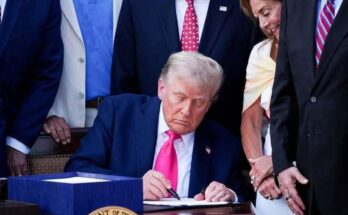
For many people, acne seems like a problem best left in the teenage years. Yet for countless adults—especially those over the age of 40 or even well into their retirement years—breakouts around the chin and jawline remain an unwelcome reality.
If you’ve noticed persistent pimples on your chin, you’re not alone. Dermatologists have seen a sharp rise in cases of adult chin acne, and the culprits are often more complicated than simple teenage hormones. In fact, the causes of chin breakouts can range from stress and diet to deeper hormonal shifts that happen naturally with age.
The good news? With the right knowledge and a few lifestyle changes, chin pimples can be managed—and in many cases, prevented altogether.
Let’s walk through the most common causes of chin pimples, why they often appear later in life, and what steps you can take to finally reclaim clear, healthy skin.
Hormonal Shifts: The #1 Cause of Chin Acne
One of the biggest reasons adults develop chin pimples is hormonal imbalance. Unlike acne that shows up across the forehead or cheeks, breakouts around the chin and jawline are strongly tied to hormones—particularly fluctuations in androgens, which increase oil production in the skin.
For women, this can mean breakouts tied to:
- Menopause or perimenopause
- Hormone replacement therapy (HRT)
- Stopping or starting birth control
- Irregular cycles or health conditions such as polycystic ovary syndrome (PCOS)
Even for men, a natural shift in hormones as they age can trigger changes in oil production, making the chin area especially vulnerable to clogged pores and inflammation.
If you’ve noticed a predictable pattern—such as pimples that appear at the same time each month or flare-ups during times of hormonal change—there’s a good chance your skin is reacting to internal shifts, not external habits.
Stress and the Cortisol Connection
Life may look calmer in retirement, but stress doesn’t simply vanish with age. Caring for loved ones, financial concerns, health challenges, or even the simple ups and downs of daily living can place strain on the body.
When stress levels rise, the body produces cortisol—the so-called “stress hormone.” Cortisol can trigger oil glands to go into overdrive, leading to clogged pores and breakouts, particularly around the chin and lower face.
For older adults, this can feel especially frustrating. After decades of managing responsibilities, the last thing anyone wants is for stress to show up as acne. But learning ways to reduce stress—such as through gentle exercise, meditation, prayer, or time outdoors—can make a real difference not just for your skin, but for your overall well-being.
The Role of Diet in Chin Breakouts
What you eat truly does impact your skin. Dermatology research increasingly shows that certain foods can spark acne flare-ups, and the chin area is one of the first places it shows.
Some of the biggest dietary triggers include:
- Dairy products such as milk, cheese, or ice cream
- Refined sugars like pastries, candy, and soda
- Processed carbs including white bread and pasta
- High glycemic foods that spike blood sugar levels
For seniors, diet plays a double role. Not only can these foods contribute to breakouts, but they also increase the risk of diabetes, heart disease, and weight gain. Replacing processed snacks with whole foods—like fresh fruits, vegetables, lean proteins, and whole grains—can support both clearer skin and stronger overall health.
Skincare Habits That Make Things Worse
While hormones and diet play large roles, your skincare routine can also determine whether your chin clears up or keeps breaking out.
Common mistakes include:
- Using products that are too harsh or drying
- Over-cleansing, which strips natural oils and triggers even more oil production
- Forgetting to wash off makeup thoroughly
- Constantly touching or picking at the skin
For mature skin, gentleness is key. A mild cleanser, followed by non-comedogenic moisturizer and targeted treatment (such as salicylic acid or benzoyl peroxide), can help without irritating aging skin.
Hair Products and Facial Hair Residue
Believe it or not, your shampoo, conditioner, or styling products could be contributing to chin acne. Many hair products contain oils, silicones, or waxes that can transfer onto the skin during the day or while you sleep.
For men, buildup in beards or facial hair can also trap bacteria and oil, clogging pores beneath the hairline.
A simple fix is to wash facial hair daily with a gentle cleanser and check hair product labels for “non-comedogenic” or “oil-free” ingredients.
The Surfaces You Touch Every Day
Think about how often your chin touches different surfaces. Pillowcases, phone screens, your own hands—all of these carry oils and bacteria that can easily transfer onto your skin.
For older adults who may rest their face in their hands while reading, or spend hours talking with grandchildren on the phone, this habit is more common than you’d think.
Changing pillowcases twice a week, cleaning your phone screen daily, and being mindful of face-touching can go a surprisingly long way toward preventing breakouts.
When Pimples Point to Something More
Occasional chin pimples are normal, but persistent or severe acne may point to an underlying condition. For women especially, PCOS (polycystic ovary syndrome) can cause stubborn chin acne due to excess androgen levels.
Other health conditions affecting the endocrine system may also contribute to hormonal acne. If you’ve tried every skincare product and lifestyle adjustment with little success, it may be time to speak with a doctor about possible internal causes.
How to Treat Chin Acne Effectively
Managing chin acne takes patience, but many people find relief with a combination of lifestyle changes and consistent skincare. Here are some dermatologist-recommended steps:
- Gentle Cleansing – Use a mild, fragrance-free cleanser morning and night.
- Targeted Treatments – Look for products with salicylic acid, benzoyl peroxide, or adapalene. These help unclog pores and reduce inflammation.
- Moisturize Wisely – Even oily or acne-prone skin needs hydration. Choose non-comedogenic creams or lotions.
- Hands Off – Avoid touching or picking at pimples, which can worsen inflammation and lead to scarring.
- Check Your Routine – Review makeup, sunscreen, and hair products to ensure they don’t contain pore-clogging ingredients.
- Lifestyle Support – Eat a balanced diet, manage stress, and get enough sleep.
If over-the-counter solutions aren’t working, a dermatologist can prescribe stronger topical treatments, oral medications, or even light-based therapies that target stubborn hormonal acne.
Living Confidently with Clearer Skin
Chin pimples may feel discouraging—especially if you thought breakouts were left behind decades ago. But you are not powerless. With the right mix of gentle skincare, mindful habits, and professional support when needed, clearer skin is within reach.
Remember: acne is not just a teenage issue. It’s a skin condition that can affect anyone, at any age. Addressing it with compassion, patience, and consistency can restore not only your skin’s health, but also your self-confidence and comfort in your own reflection.


